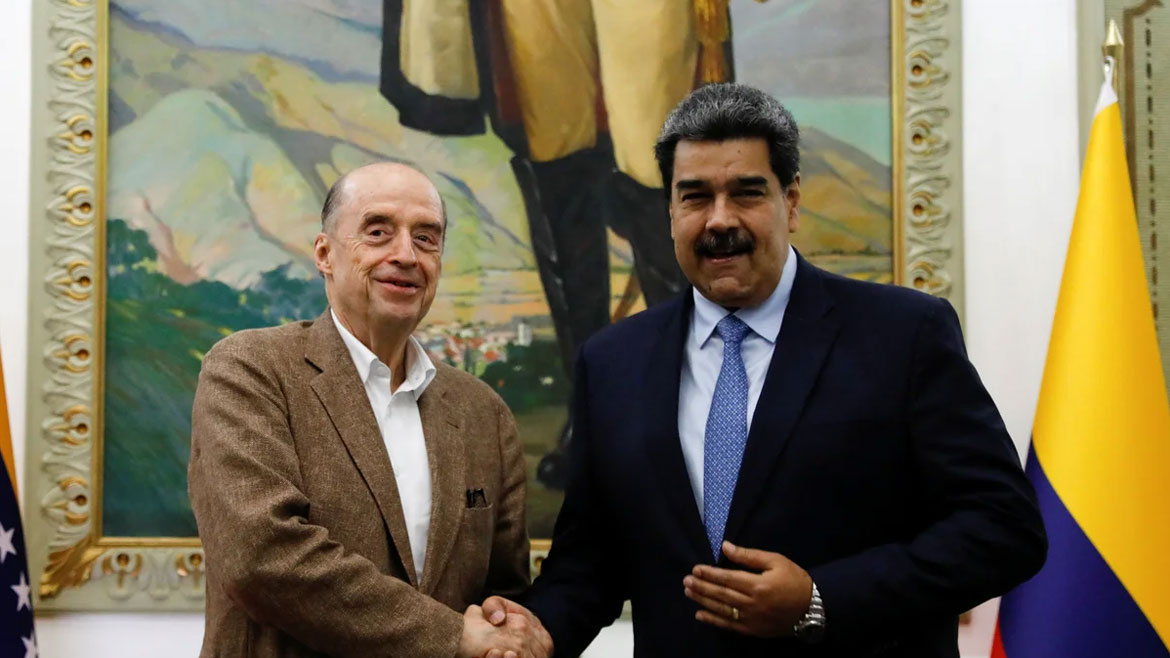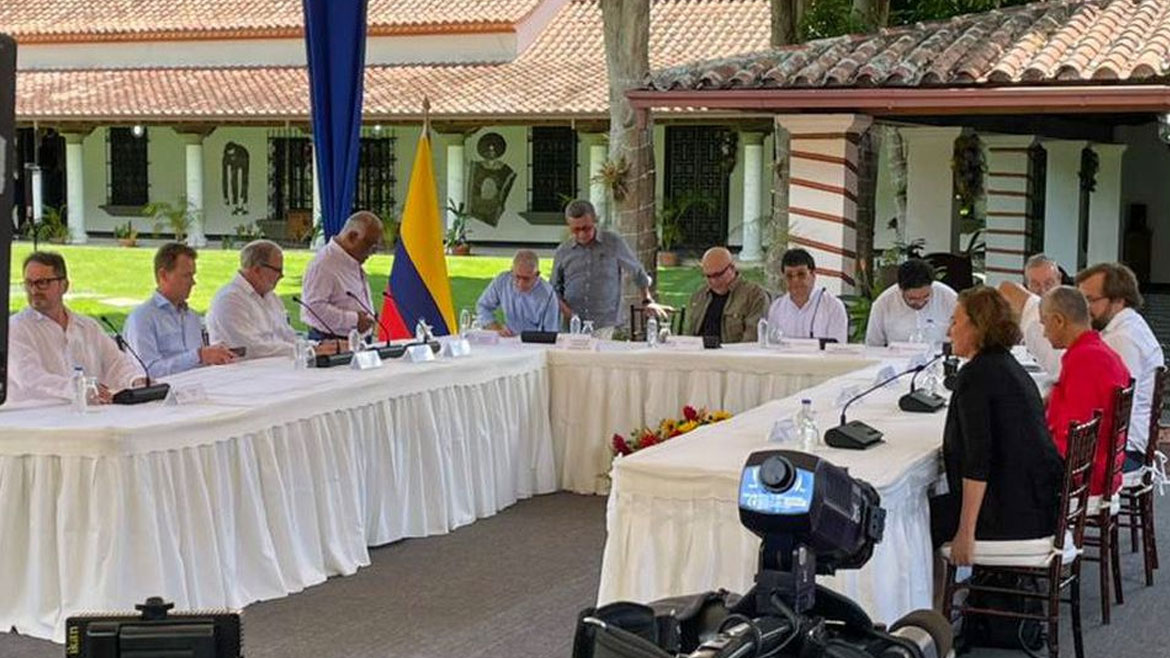Colombia’s President Gustavo Petro is taking a major risk by resuming peace talks with ELN guerrillas in Venezuela.
Petro’s peace commissioner Danilo Rueda announced earlier this month that the neighboring country would be one of three guarantor countries of the peace talks.
The announcement has been met with skepticism as many doubt whether the authoritarian government of Venezuelan President Nicolas Maduro is an appropriate guarantor and host.
ELN not just a Colombian problem
The ELN may only be at war with Colombia’s government, but has also become a major public security issue in Venezuela, politicians from that country have stressed.
This has been confirmed by independent organizations like the International Crisis Group (ICG) and Human Rights Watch (HRW).
According to the ICG and HRW, the ELN has become a major player in the criminal economy in the border region and the neglected jungles in the south of Venezuela.
Consequently, “the last thing that the Venezuelan government should be is be a guarantor,” Venezuelan deputy Oscar Ronderos of the Democratic Action party told newspaper El Espectador.
Instead, Ronderos proposed that Caracas joined the peace talks as “a party of interest” as “we believe it’s convenient the guerrilla group ceases its violent activities in both Venezuela and Colombia.”
The ELN “must talk about what they’re doing in Venezuela,” an anonymous former lawmaker and scholar from the Andes University in the city of Merida told El Espectador.
“If they don’t there’s no point in being the guarantor of anything,” the scholar added.
Colombia’s ELN rebels a ‘threat to regional stability’: international coalition
How big is the ELN in Venezuela?
The ELN has been active on the border between Colombia and Venezuela for decades, but has increased its control in southern Venezuela over the past few years, according to the ICG.
This would have given the ELN major control of illegal gold mining in the jungle region and smuggling routes to Colombia and Guyana.
HRW has additionally accused members of Venezuela’s security forces of being complicit in the guerrillas’ human rights abuses in the neighboring country.
Maduro has categorically downplayed the guerrillas’ power in Venezuela, but deputy Juan Carlos Palencia from the border state of Tachira claims the ELN has become “a binational guerrilla group.”
“So it would be good if they sit down with” the governments of “both nations,” Palencia told El Espectador.
The troubled expansion of Colombia’s ELN guerrillas
Bilateral instability
Another complication is that the Petro administration resumed peace talks with the ELN in Caracas before restoring ties with Maduro that were cut in 2019.
The two governments agreed to reopen the border last months after which their defense minister met to “begin defining the first steps and a timeline that ultimately leads to the full restoration of military ties between the two countries.”
This pending agreement would have a major effect on the ELN and other illegal armed groups that effectively control much of the border between Colombia and Venezuela.
Consequently, the possible resumption of a coordinated border security policy could increase pressure on both the Colombian guerrillas and the Venezuelan security forces.





